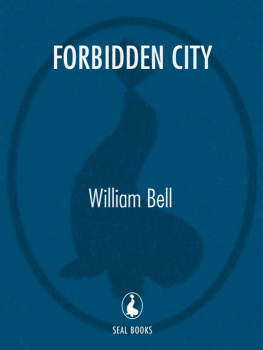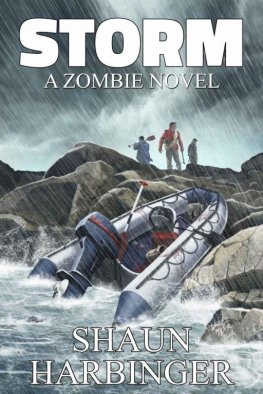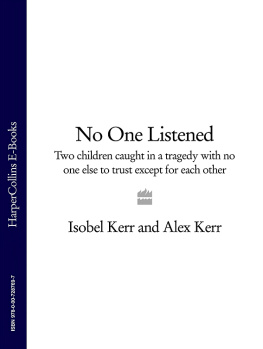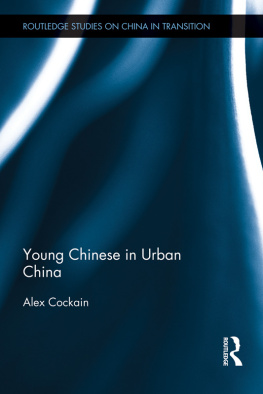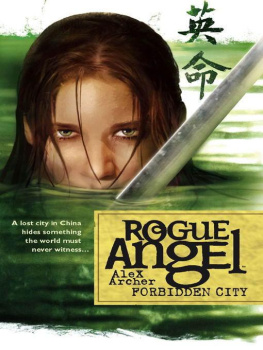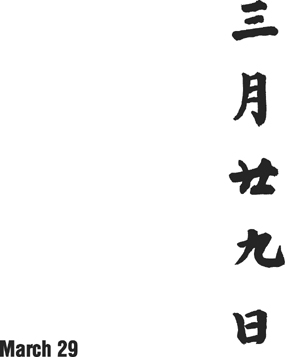Acknowledgements
Thanks to John Pearce for support and encouragement in the writing of this book; to Philippa Dickinson for valuable suggestions; to Chris Thomas, Marcello Tulipano, Dawn Edmonds, Candace Nelson, and Dylan Bell for helpful ideas; to Shaun Oakey for painstaking work on copy-edit; and to Doug Woolidge for technical information about acupuncture.
Last and most of all to my beloved friend for her invaluable assistance in virtually every aspect of this book, and whom, because of the subject matter of this novel, I cannot name.
ALSO BY WILLIAM BELL
NOVELS:
Crabbe
Absolutely Invisible
Five Days of the Ghost
No Signature
Speak to the Earth
Zack
CHILDRENS BOOKS:
The Golden Disk
River, My Friend
Afterword
The number of those killed in the Beijing massacre on June 4, 1989 has never been officially recorded.
Approximately one month after the incident, Chen Xi-tong, Mayor of Beijing, submitted his report to the Politburo of the Communist Party of China. During the whole operation, he wrote, no one, including those who refused but were forced to leave, died.
About the Author
William Bell holds Masters degrees in both Literature and Education. Currently the Head of English at Orillia Collegiate, he has also taught at the University of British Columbia as well as colleges in Harbin and Beijing.
William Bells other novels include Crabbe, No Signature, Speak to the Earth, and Zack. Forbidden City has been translated into more than ten languages.
A Note on the Pronunciation of Chinese Names
The Chinese names in this book are given in the official form of transcription called Pin-yin, and each syllable is given separately. Here is a brief pronunciation guide for surnames:
Other words:
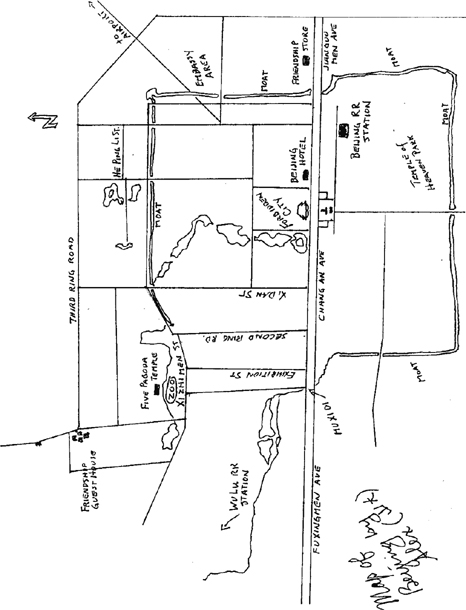
Sometimes I wonder if my father will ever grow up.
Take the day when this all started, for instance. When I got home from school I heard his excited voice rattling out of the study, going a mile a minute, obviously not listening too closely to the person on the other end of the phone because whoever it was couldnt have gotten a word in sideways.
I wondered why he was home from work so early. There he was in the chair behind his desk, leaning back so far youd swear he was going to go over backwards like a slap-stick comedian, with the phone wedged between his shoulder and his neck, yakking away while he tried to tear open an envelope. Probably so he could read his mail while he was talking. Then later hed probably get what was in the mail and what was on the phone mixed up. My dad.
Yeah, he said breathlessly into the phone. Just got the assignment today. What? You bet Im excited!
He was, too. I could tell from his eyes that something big was going on. His eyes are bright blue, like mine, and when hes turned on to something they sort of dance. They were rockin and rollin today, all right.
It could be the start of something really important over there, he went on.
I tuned him out and looked at the mess on the floor of the study. There was a new Sony Betacam just unpacked from the carton. It looked like Dad had torn open the carton in a fit of rage. There were squares and oblongs of white styrofoam lying all over, along with clear plastic bags, twist-ties, and tons of those styrofoam bits that Dad calls plastic mouse droppings. But it was just his usual method of unpacking rip and tear until you find whats inside.
Then my eye caught another smaller box, ripped open but not emptied. I looked inside. It was a camcorder, the kind tourists and proud mommies who want to take pictures of their kids birthday parties buy.
Youd never believe it to look at him now, his lanky form splayed out in the chair, light brown hair in a mess, shirt wrinkled, jeans creased, but my dad is one of the top news cameramen in the country. Im really proud of him, although I wouldnt tell him that. He works for the CBC and hes won a couple of awards, like the time he just about got killed videotaping the capture of a gang of bank robbers who had gotten stuck in traffic on the Gardiner Expressway.
Long ago I realized that it was my dads childish no, childlike, he always says personality that makes him such a great camera man. Its his crazy risk-taking that makes his work extra special.
But sometimes I wish hed realize that there are other things in the world than cameras and film and lenses and videocassettes.
I wonder how Dad scored a new Betacam, I thought as he chattered away into the phone. Right. Its been thirty years since the break, with lots of conflict in the meantime. This will be a really big story.
His voice faded as I left the study. He had finally noticed me from behind the piles of papers, stacks of files, and collection of mouldy coffee mugs on his desk and waved, so I left the room. I knew Id get a full rundown of the conversation whether I wanted it or not later on, so I went downstairs to the basement.
I flipped on the light and was struck by the stern faces of a few dozen soldiers staring at me. They were lined up in ceremonial formation, soldiers from an ancient army. They stood erect and proud on a piece of thick plywood. I looked at them from the doorway, scanning the lines of miniature men, looking for a flaw in the deployment of the ranks, a tiny lead soldiers tunic painted the wrong colour, a bowman kneeling on the wrong knee. I knew Id find no flaws, but I looked the soldiers over anyway.
There wasnt a whole army of course, only three dozen miniature men and one war-chariot with four horses. I had made every one of them from moulds I fashioned myself, then hand-painted each one, carefully, so as to get the detail perfect. There was six months research and then a years work of casting, finishing and painting. Now the display was almost ready.
This was my most ambitious project. I had been a nut about all aspects of military history for a long, long time. I had model planes hanging on threads from my bedroom ceiling. Three tanks guarded my dresser. An armoured personnel carrier defended my desk. And in the basement were stored boxes of tin soldiers, along with layout plans for battles. I had done the Charge of the Light Brigade, the Battle at Frog Lake from the Riel Rebellion, the Plains of Abraham, naturally, Dien Bien Phu and more. I had won lots of trophies from exhibitions put on by hobbyists all around Ontario.
But this one was going to be the best anybody had ever done. I hoped. I got the idea from a TV show I saw about two years ago. It was some kind of documentary on Chinese history, and it concentrated on a burial site near Xian, an ancient capital in northwest China. The first emperor of China, Qin Shi-huang, is buried under a huge tumulus thats a tomb hidden under a man-made mountain. The Qin dynasty was in power from 221 to 207 B.C . and Qin Shi-huang, the founder, was the emperor who built the Great Wall of China. Actually, he linked together a lot of walls that were there before he came to the throne. The Chinese still havent opened the tumulus yet. Anyway, about a klick and a half from the tumulus a farmer was ploughing the ground one day, struggling along behind his mule or ox or whatever, and he looked down and saw the top of somebodys head. Turned out it was the head of a life-size model of a soldier made of terra-cotta clay.

